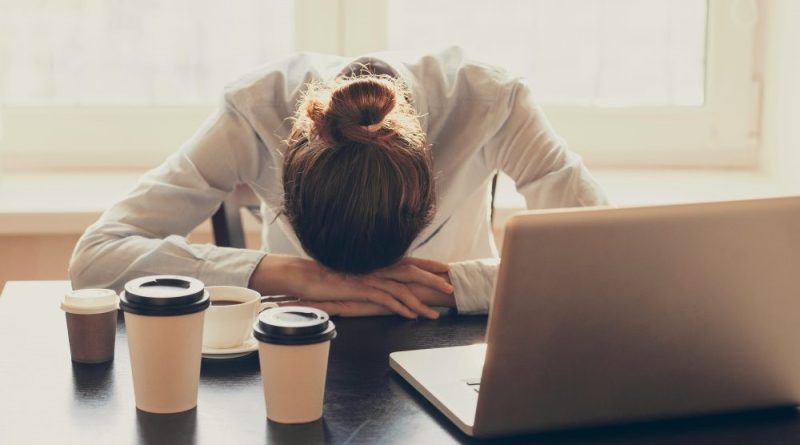10 Ways to Stop Feeling Tired All the Time
You’re only as old as you feel, the saying goes. But what if you feel old, tired, and rundown? Fatigue is a common complaint in our fast-paced modern world. Many times, you may find yourself running from one activity to the next, not pausing to take the time you might need to ground, balance, and soothe your soul. Fortunately, there are plenty of simple ways to boost energy. Here are 10 ways and strategies to kick all-day fatigue to the curb and get your energy back ASAP.
Get your sweat on every day
Exercise releases energizing hormones like epinephrine and norepinephrine, giving you a post workout boost. Just as important? Daily activity is key for helping you snooze more soundly, upping the odds that you wake up refreshed in the morning. Do at least one hour of exercise every day, be it running, walking, cardio. To make it easier to stick to an exercise plan, find a workout buddy.
Pick healthy carbs
For energy that lasts, say yes to complex carbs like whole grains, beans, and sweet potatoes paired with a source of protein and healthy fat. Foods high in refined carbs, white bread, white pasta, white rice, or sugary snacks, cause your blood sugar to spike and quickly crash, which is a recipe for sluggishness.
Skip the afternoon coffee
A cuppa joe or two in the morning can deliver a much needed jolt. But caffeine takes hours to clear out of your system. So if you’re sipping it in the afternoon or early evening for a boost, there’s a good chance it’ll end up messing with your sleep, leaving you less alert the next day.
Take a power nap
Forget the idea that naps are lazy. They’re actually proven productivity boosters. And they don’t need to take a ton of time. Just 20 minutes is all you need to power you through the rest of the day.
Sniff something energizing
Scents like lemon, rosemary, and peppermint all have a stimulating effect, making them go-to aromas for helping you feel more alert and focused. Keep a bottle of essential oil in your bag and reach for it whenever you need a quick pick-me-up or light a scented candle with one of this scents.
Quit smoking
Smoking can deplete your energy by reducing your oxygen levels, and making breathing difficult. Quitting smoking is an attainable goal, and there are resources to help. Over-the-counter and prescription medications are available that may help you quit. These medications are more effective when combined with counseling. You can also try one of the many smoking cessation apps available. Discover tips from people who successfully quit smoking. Keep a journal so you can have some type of inner reflection during this time.
Drink plenty of water
When you consider your brain’s a whopping 73 percent H2O, it’s no wonder that being dehydrated can zap your energy. The good news? If you tend to fall short on your water intake, just drinking more can be enough to get you revved. Dehydration can lead to low energy levels. It can also have a negative impact on your sleep by drying out your mouth and nasal passages, and can lead to snoring, hoarseness, and leg cramps. Plus, it can make you less alert and mentally clear the next day.
Do the mini-meal thing
Ever scarfed down a huge, heavy meal, then felt the immediate urge to take a nap? Big meals divert more energy to your digestive system, which can temporarily leave your brain short on the fuel it needs to fire on all cylinders. But having smaller meals or snacks spaced out throughout the day ups the odds that your noggin has a steady supply of nutrients. Eating smaller portions more frequently throughout the day may be more beneficial than eating a few large meals. That’s because it keeps your blood sugar levels stable. Eating every three to four hours will make it less likely that your energy crashes, and in turn you’ll be less likely to reach for unhealthy food. Avoid overeating at meals, and stop eating before you are entirely full.
Get your sleep on
Proper rest is essential if you want to maintain energy levels throughout the day. Relax before going to bed, possibly doing some gentle stretches. Improve your sleep area by keeping it clean and maintaining an appropriate temperature. Others things you can do to get better sleep include: practice guided relaxation, meditation, or yoga to help you drift off to sleep; buy a comfortable mattress, pillow, and blanket; wear loose, natural fabrics; go to sleep and wake up at the same time each day; Journal before bed to clear your mind; use earplugs and an eye mask.
Keep time with your body clock
Some people get a burst of energy first thing in the morning. They’re often called morning larks. Night owls are people who are at their best at the end of the day. These individual differences in daily energy patterns are determined by brain structure and genetics, so they can be tough to change. Instead, become aware of your own circadian rhythms. Then schedule demanding activities when your energy levels are typically at their peak.

